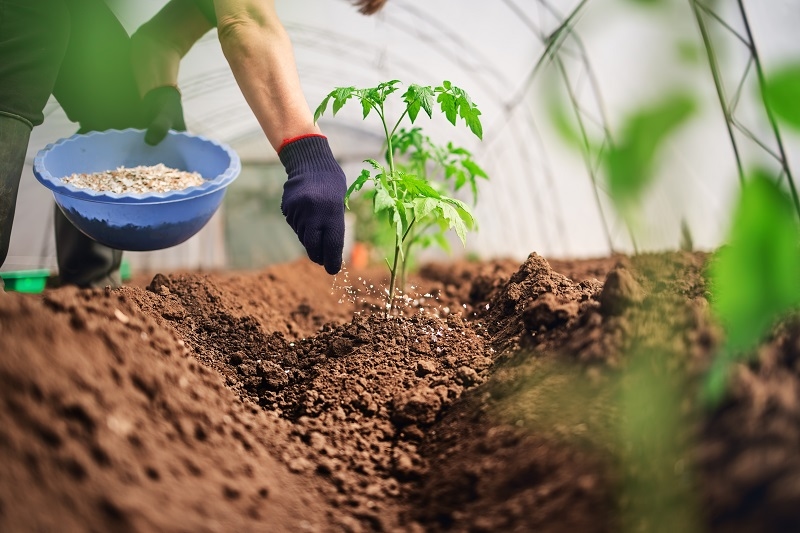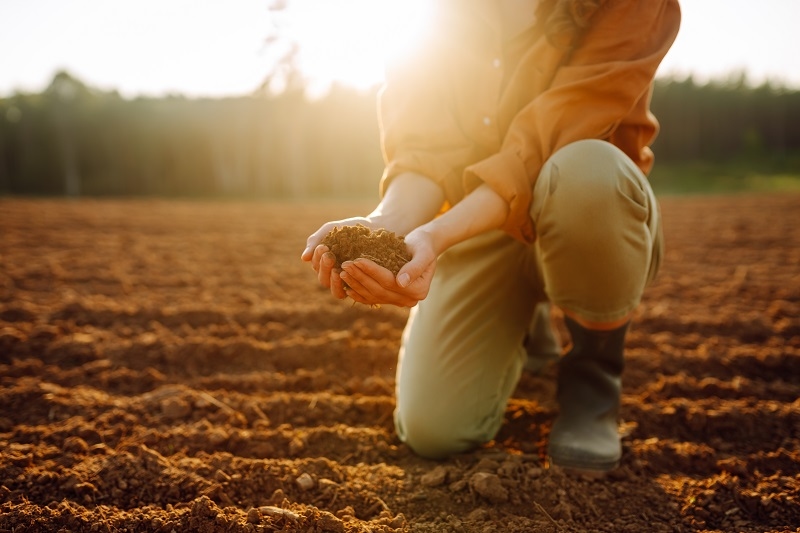
Organic fertilizer serves as the foundation for creating a healthy and sustainable garden. Organic fertilizers are any material that adds nutrient value to the soil while improving the overall structure and fertility of the soil, as opposed to synthetic fertilizers, which only add nutrient value. Organic fertilizers, combined with other recipes and DIY organic fertilizing methods (like compost tea for plants), allow you to fertilize without the use of chemicals. These enrichments to the garden will help improve soil and further support plant growth for the long term.
If you are just starting out gardening or have years of experience growing plants, what you need to know about organic fertilizer and its advantages over chemical fertilizer will help you make informed choices for your garden, your soil, and the environment.
Organic fertilizer has benefits beyond simply feeding the plants, offering you a good.
If you want to save some bucks and know exactly what you’re putting in the soil, follow these homemade organic fertilizer recipes. We’ve compiled a few homemade formulas we know have been tested and trusted:
Banana peels are rich in phosphorus and potassium and can be used straight in the soil or mix with water for a liquid fertilizing booster.
Mix one tablespoon of Epsom salt per gallon of water. This solution offers up magnesium, essential for photosynthesis.
Used coffee grounds add nitrogen to the soil. Mix them into compost or spread them lightly on garden beds.
Crushed eggshells release calcium, preventing blossom end rot in tomatoes and peppers.
Old fish tank water is a good source of nitrogen and positive microorganisms. Use it to fertilize your plants for a quick pick-me-up.
These DIY garden boosters are eco-friendly, cost-effective, and completely safe alternatives to traditional chemical-based fertilizers.
One of the strongest organic plant fertilizers is compost tea for plants. This liquid gold is brewed by steeping compost in water and extracting soluble nutrients and positive microorganisms.
Gardeners everywhere regard compost tea as one of the finest natural fertilizers to use to promote healthy growth without deleterious side effects.
In selecting the best natural fertilizers, look at what your soil requires most. Some of the best ones are:
Each of these fertilizers functions in a different manner, so strategically using them together provides balanced nutrition. For instance, compost enhances soil health, whereas bone meal targets root establishment.

Whether organic vs chemical fertilizer is right for you is a matter of debate, but really, the decision is often a matter of what you want to achieve.
Synthetic fertilizers guarantee immediate results, while organic fertilizer guarantees the continued fertility and viability of your garden for the long run.
In addition to your DIY blends and compost tea, you can also prepare homemade garden boosters that provide consistent nourishment.
Spread fresh grass clippings around your plants. Since grass clippings break down quickly, they introduce nitrogen back to the soil.
In order to feed soil microbes and help your plants, mix one tablespoon of molasses in a one-gallon bucket of water.
Diluted vinegar in water will benefit any plants that like acidic soil (e.g., blueberries and azaleas), by lowering the pH of the soil.
Wood ash can be spread, as it is a natural source of potassium and calcium.
Aloe vera contains enzymes and growth hormones that help with seed germination and root development.
These enhancers are inexpensive ways to provide plants with a continuous source of nutrients and improve the harmony in the soil.
For optimum performance with organic fertilizer, observe these best practices:
Increasingly, gardeners are turning to organic fertilizer for its green advantage. While synthetic fertilizers deplete the soil of its life force, organic fertilizer creates strength.It is safer for children, pets, pollinators, and the environment. And with the ease of accessing homemade organic fertilizer recipes, plant compost tea, and all kinds of homemade garden enhancers, everyone can have a lush, chemical-free garden.
Choosing organic fertilizer rather than chemical fertilizers is a promise to healthier plants, better soil, and a greener planet. With homemade organic fertilizer recipes and the ability to make compost tea for your plants, you have a selection of natural options to keep your garden thriving. Using the best natural fertilizers and making your own garden energizers gives you a responsible way of feeding your soil without exposing it to the side effects of manufactured products.
When it comes to organic vs chemical fertilizer, organic is the clear winner when it comes to a sustainable and successful long-term garden. Not only will you see healthier, more resilient plants, but you’ll be doing your part to keep the planet greener.
This content was created by AI